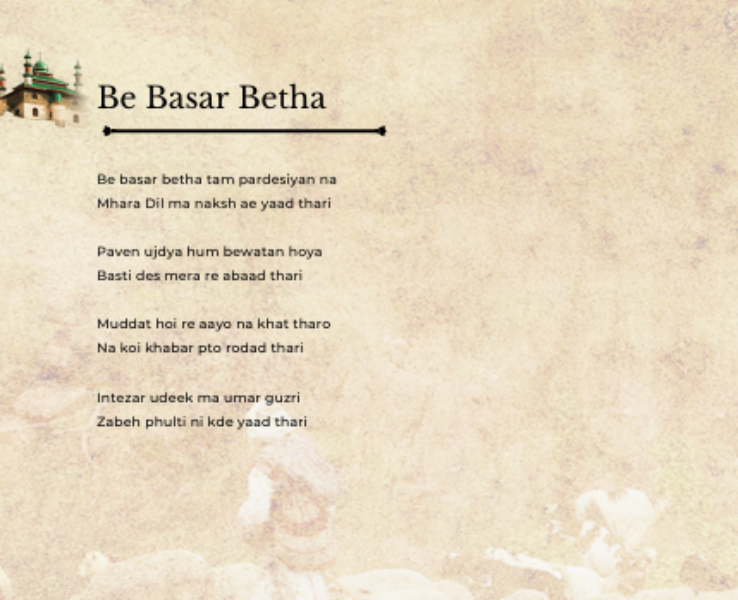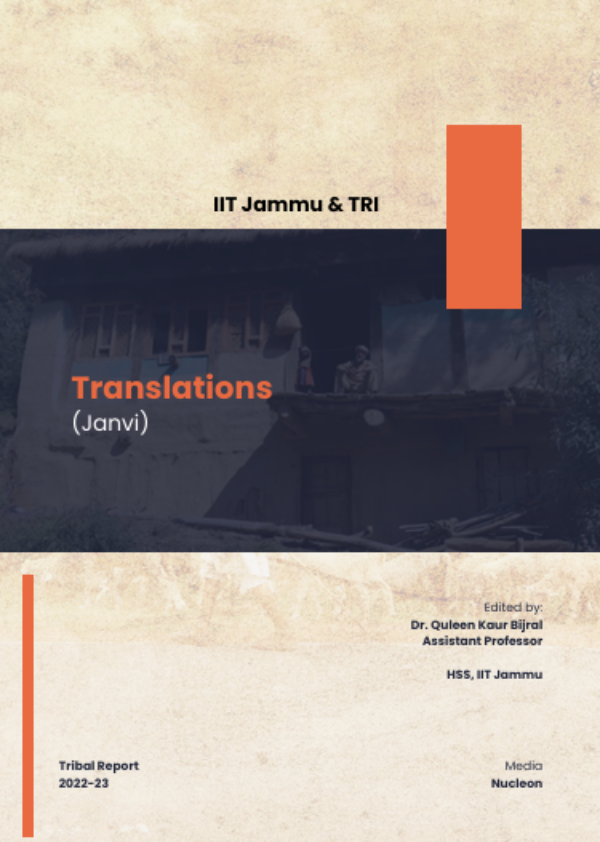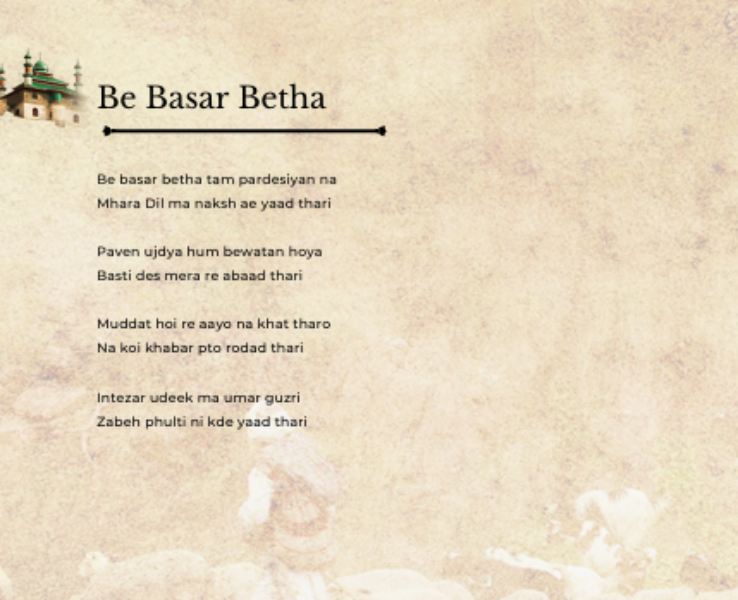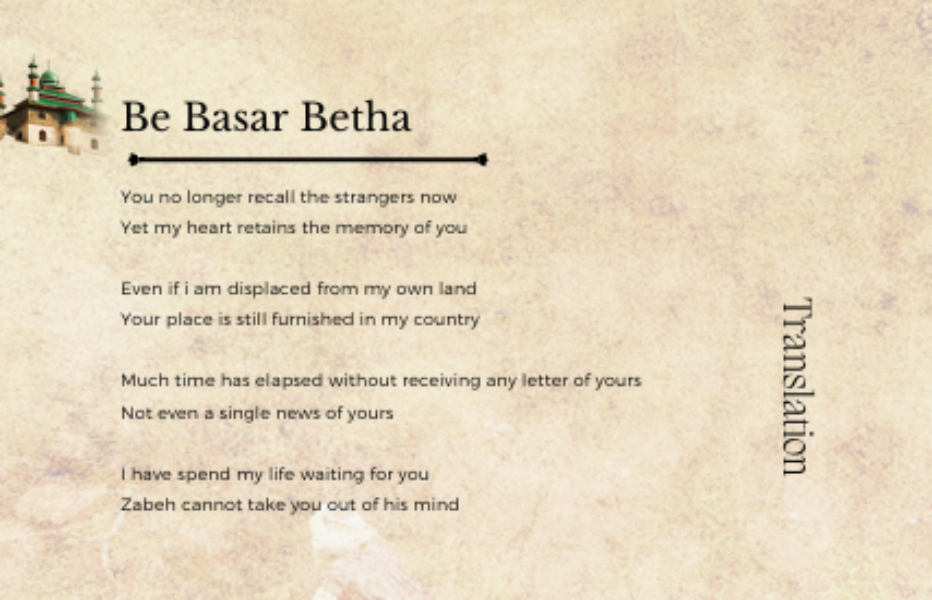
Themes
tribal languages and literature
Be Basar Betha, jammu & kashmir

Janvi is a poet who is famous for working on themes of love, yearning, and separation. She portrays the emotional depth of relationships in her works, exploring extensively the ache and determination of the heart. Her poetry has a moving combination of personal experience and the universal sense of longing, and readers find great connect with her work. Her singular talent for expressing sorrow and hope, frequently in a direct but evocative way, makes her a strong voice in modern poetry.
The poem "Be Basar Betha" is composed in free verse, which enables the poet to express feelings without the limitations of a set meter or rhyme. This structure captures the speaker's sense of uncertainty, loss, and time passing. The absence of a formal structure captures the poet's pain and yearning, and the casual rhythm adds to the sense of a personal, emotional utterance. The lines run smoothly, capturing the speaker's emotional struggle as they wait for their loved one.


"Be Basar Betha" is not written in a traditional rhyme scheme, typical of free verse poetry. The absence of rhyme contributes to the sense of disorganization and emotional shattering the speaker experiences. Avoiding a traditional rhyme, the poet creates a sense of uncertainty, reflecting the disorienting aspects of love and loss. The free-flowing style of the poem further amplifies the strength of the speaker's emotions of abandonment and yearning.
The mood of "Be Basar Betha" is melancholic and yearning. The poem conveys the speaker's grief at the loss of their loved one, who has forgotten them. The theme of love that is not returned and pain of waiting form the core of the poem. The heart of the speaker holds memories, but time and distance have taken away only an empty space in which their love used to be. The theme expresses the everlasting nature of love even when separated physically.


"Be Basar Betha" is poetically centered around the emotional process of the speaker as they remember their love and separation. The poem delves into the connection between loss and memory, highlighting how the heart persists to retain the past. In spite of the passage of time and the dissolution of communication, the space in the speaker's heart for the beloved remains "furnished," representing their forever connection. The centricity of the poem is in the interplay between hope and despair, with the speaker stuck in a state of liminality of longing.

